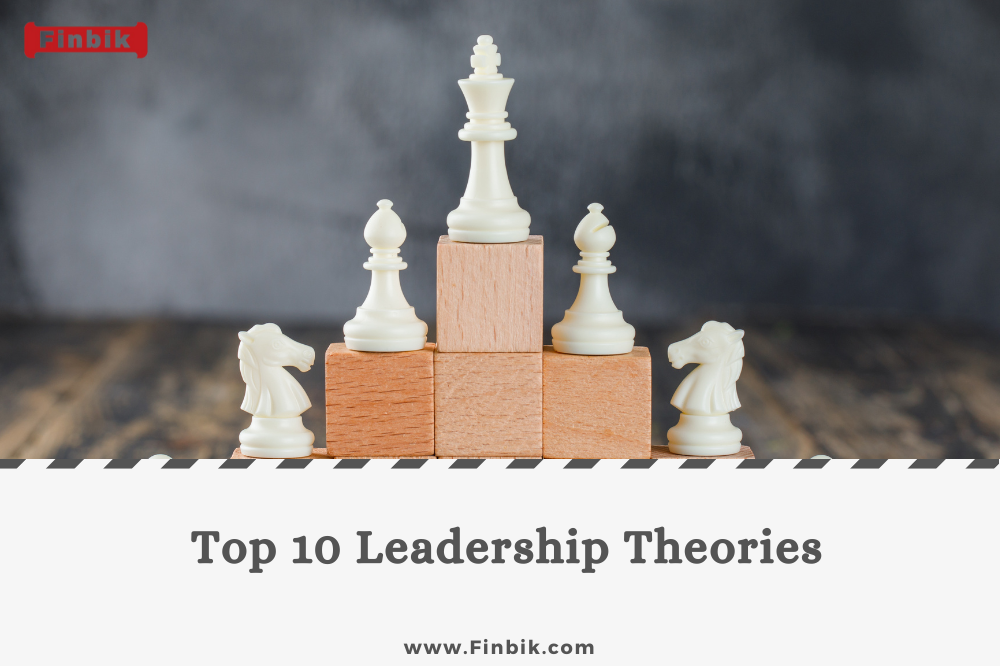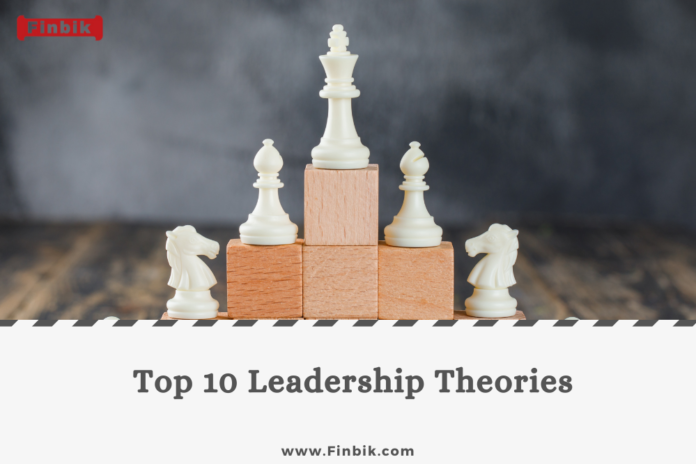Top 10 Leadership Theories
First of all, we need to understand that leadership is critical in every organization. For efficient managerial skills, leaders must also comprehend what leadership theories mean to them. As a result, this paper focuses on explaining what the concept of leadership theory encompasses as well as its importance. Besides, by applying these theories to their practice, they get an insight into how things work which then enables them to improve their competencies either as individuals or collectively in groups or organizations.

What is Leadership Theory?
Leadership theory alludes to various approaches and frameworks explaining how leaders interact with team members, make decisions, and influence organizational outcomes. Leadership theories are imperative for effective leadership and comprehension of these theories is a prerequisite for success. Most importantly, they provide valuable insights into the process of becoming a successful leader thereby enabling one’s skills development.
However, many leaders are unaware of how important leadership theories are, and that could potentially result in them being incapable of leading effectively.
What are the Qualities of an Honest Leader?
Before we delve into leadership theories, we should understand what makes an honest leader which is qualities. The most important thing is that these honest leaders have integrity; they care about others’ feelings as well as listen to them. In addition, they have other features like openness or fairness even during making any decisions that involve them. That means that an honest leader creates an atmosphere where employees can develop their potential in all respects.
Top 10 Leadership Theories
Leadership theories great man, here are the top 10 leadership theories:
1. Trait Theory
Firstly, the trait theory states that there are certain traits that people are born with which are inherent in them such as intelligence, charisma and courage, potentiality, et cetera. Nevertheless, this perception has shortcomings since it ignores the environmental influence. Moreover, because things have changed over time we cannot continue relying on this system when addressing complications brought by today’s leadership changes, it is no longer applicable.
2. Behavioral Theory
Secondly, another focus of the behavioral theory is on the activities and conduct of leaders and not their traits hence according to this theory leadership qualities are acquired through learning and experience. Behavioral theory happens to be more effective than trait theory since it takes into account the changing nature of leadership.
3. Contingency Theory
Thirdly, situational and contextual dependency influences the effectiveness of leadership according to contingency theory. On this point, that which might be efficient under one circumstance may fail in another. Nonetheless, such complexity implies that management has to quickly adjust itself within such transforming environments.
4. Transformational Leadership
However, transformational leadership theory, however, asserts that it is important to inspire and influence team members to achieve a collective vision. Specifically, transformational leaders promote an enabling environment at work positive from everyone’s inclusivity into the whole process and towards the outcome which is necessary for this triumph. The other advantage associated with transformational leadership is that it considers the needs and dreams of team members hence effective in recent organizations.
5. Transactional Leadership
Transactional leadership focuses on the interaction or exchange between leaders and followers is what transactional leadership is all about. This is where transactional leaders provide rewards and recognition to their subordinates so they can conform to their wishes.
6. Situational Leadership
Situational leadership theory, in addition, implies leaders should modify their approach to their team’s maturity and capability; it is particularly helpful since it takes into account the individual requirements and skills of all members.
7. Participative Leadership
Furthermore, participative leadership is found in this theory consisting of engaging all the members of the team in the process of deciding to earn trust and devotion.
8. Autocratic Leadership
There is little input from team members in autocratic leadership theory as it stresses the leader’s authority and control. Still, autocratic leadership can be restrictive because it pays no attention to teamwork or cooperation.
9. Democratic Leadership
However, democratic leadership theory involves sharing decision-making power with team members and encouraging their participation. However Democratic leadership above all is effective because it takes into account team members’ views and ideas.
10. Great Man Theory
Lastly, the great man theory stands for the idea that certain traits and characteristics distinguish individuals as natural leaders right from birth. This suggests that effective leaders are meant to be successful by birth and they are born with authority qualities.
Conclusion
To sum up, leadership theories enable us to think about the kinds of behavior shown by successful leaders so that they can further enhance their skills. Thus, a clear comprehension of such theories is needed for successful administrative duties and organizational prosperity. Nevertheless, there are theories; transformational leadership, etc. whose application can turn ordinary managers into effective charismatic ones whose workplaces are always busy with ethical production processes that add value to stakeholders and motivate them towards achieving good results. Moreover, leadership theories are very important for success and must be understood and applied by leaders first and foremost.
Articles You May Like
What is Entrepreneurial Leadership, Definition And Characteristics
What is Career Development – Types, Steps and Importance

